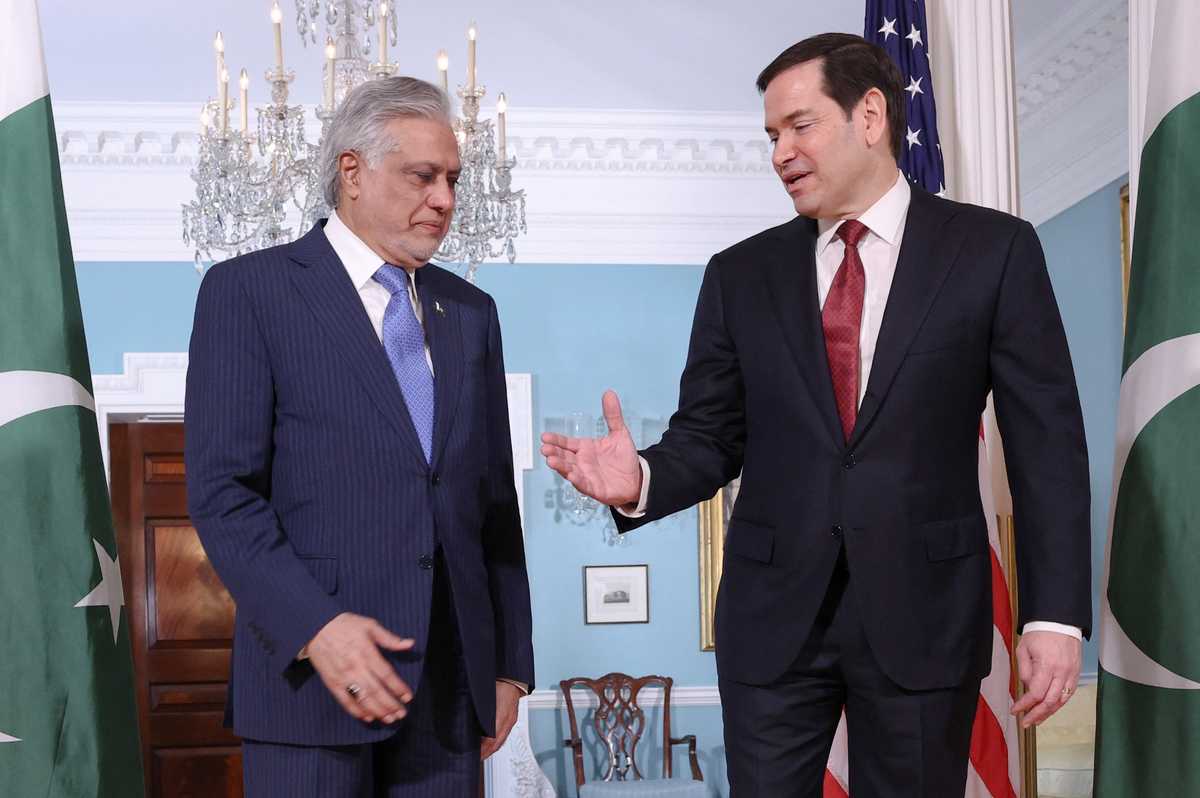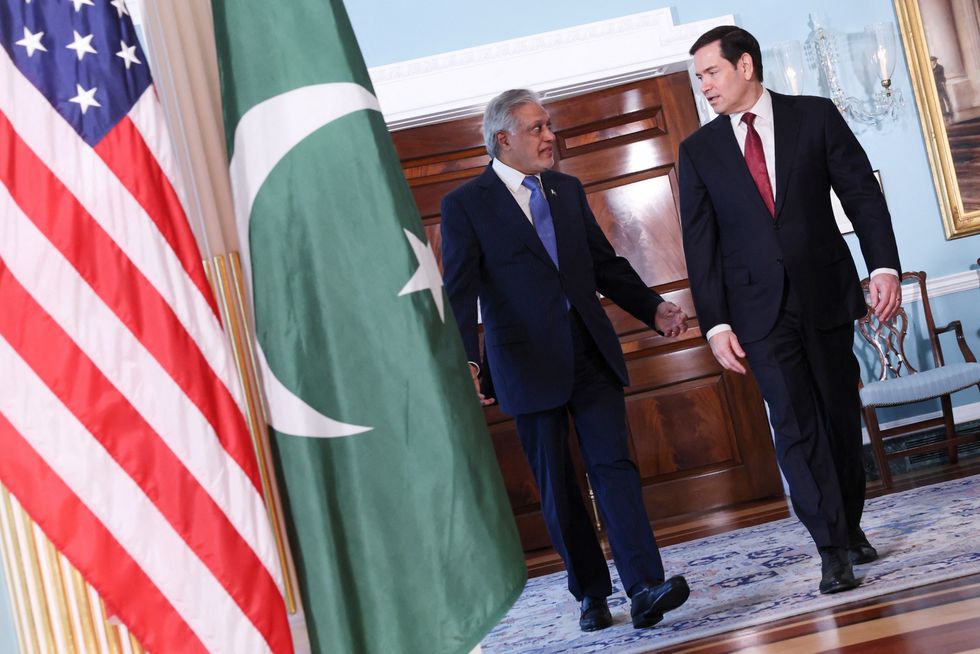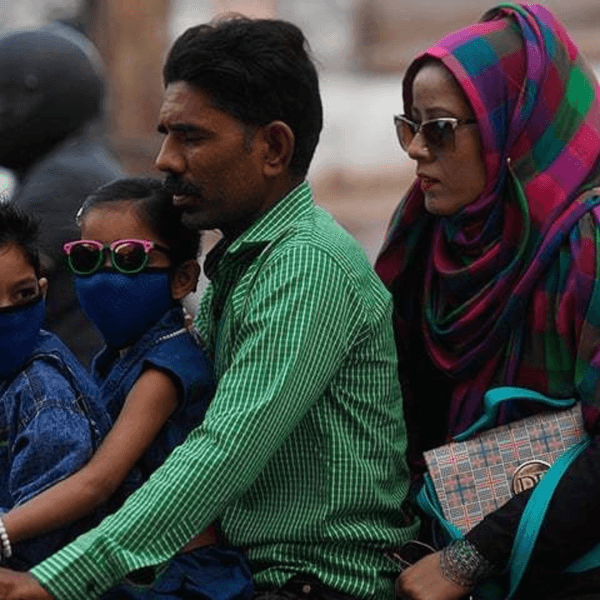What Dar’s US trip really delivered for Pakistan and what still hangs in the balance
Deputy PM’s eight-day visit focused on trade, counterterrorism, and positioning Pakistan as a neutral player in US-China tensions

Asma Kundi
Producer, Islamabad
Asma Kundi is a multimedia broadcast journalist with an experience of almost 15 years. Served national and international media industry as reporter, producer and news editor.

U.S. Secretary of State Marco Rubio and Pakistan’s Deputy Prime Minister Ishaq Dar shake hands at the State Department in Washington, D.C., on July 25, 2025.
Reuters
Pakistan’s Deputy Prime Minister and Foreign Minister Ishaq Dar arrived in Washington, D.C., last week with the hopes of recalibrating a relationship that has long swung between cautious cooperation and mutual suspicion.
His eight-day diplomatic tour -- spanning from New York’s financial circles to the U.S. capital’s policy corridors -- was billed as a potential reset with one of the world’s most influential powers.
It was the first high-level cabinet meeting between Islamabad and Washington since 2016. And the stakes were high.
At the heart of Dar’s visit was a tightly packed agenda: fast-tracking a trade agreement, boosting counterterrorism cooperation, and advancing Pakistan’s position as a neutral player amid U.S.-China rivalry.
In his speech at the Atlantic Council, Dar projected confidence, declaring that a long-awaited trade deal with the United States was just “days away.” He hinted at competitive tariff arrangements -- comparable to those of Vietnam or Japan -- that could open new export avenues for Pakistani goods, particularly textiles and tech.
The U.S. remains Pakistan’s largest single-country export market, and Dar sought to capitalize on that strength. He painted a picture of Pakistan as a ripe destination for foreign investment -- citing its young workforce, untapped mineral wealth, and ambitions in agriculture and IT.
In New York, he courted American investors with the promise of “win-win” partnerships. In Washington, he received a warm reception from Secretary of State Marco Rubio, who acknowledged Pakistan’s role in fostering regional stability and counterterrorism.
A diplomatic win, with caveats
Among the symbolic victories, Pakistan received renewed recognition as a nation that has paid a heavy price in the global fight against terrorism. Dar also lauded U.S. President Donald Trump’s mediation in the recent Pakistan-India standoff -- going so far as to propose him for a Nobel Peace Prize for brokering the May 2025 ceasefire that followed the deadly attack in Pahalgam.
Still, beneath the public statements and photo ops, uncertainties lingered.
Dar’s push for a “mutually beneficial” trade agreement lacked specifics. The U.S. officials offered no clear timeline, and the final terms remained under review in Islamabad.
Meanwhile, Washington’s keen interest in critical minerals, artificial intelligence, and renewable energy raised concerns that American priorities might overshadow Pakistan’s broader economic needs.

Then there was the tightrope walk with China -- Pakistan’s “iron brother.” Dar made an ambitious case for Pakistan as a bridge between Beijing and Washington, but the feasibility of that role remains in question, especially amid ongoing U.S.-China tensions. The attempt to balance both relationships risks stretching Islamabad’s diplomatic bandwidth thin.
Experts weigh in on strategic gains, manageable risks
Former Ambassador to the U.S. Sardar Masood Khan saw the Dar-Rubio meeting as a pivotal diplomatic moment.
“The first key takeaway is that for the first time in years, Pakistan’s Foreign Minister and the U.S. Secretary of State engaged in a structured dialogue to assess and make decisions on the full spectrum of our bilateral ties,” he told Nukta.
“This meeting builds on the earlier engagement between President Trump and Field Marshal Syed Asim Munir.”
Khan also noted the tangible progress achieved on defense and security cooperation.
“The U.S. acknowledged Pakistan’s constructive regional and global role and expressed appreciation for its Iran-related diplomacy. Our defense ties were also upgraded, with both sides agreeing to scale up cooperation on counterterrorism in the region,” he said.
“Politically, there was a strong commitment to drive forward economic and commercial engagement — covering tariffs, critical minerals, cryptocurrency, new technologies, renewables, and energy projects.”
On the question of whether closer economic ties with the U.S. might strain Pakistan’s relationship with China, Khan was unequivocal.
“Our favorable trade relations with the U.S. will not adversely affect our ties with China, nor will they strain them. For one, the U.S. and China remain the world’s largest trading partners despite their strategic competition,” he explained.
“Second, Pakistan’s trade volume with both countries is relatively small, so even a significant increase in exports to the U.S. will not undermine Chinese interests. China is too large and mature an economy to worry about that. More importantly, Pakistan’s relationship with China is strong, resilient, and multi-dimensional. Our trade with the U.S. is not going to impinge on the all-weather strategic cooperative partnership between Islamabad and Beijing.”
Former foreign secretary Salman Bashir offered a similarly balanced perspective, saying that the Dar-Rubio meeting helped shape a clearer understanding between both countries.
“The meeting contributed to a better mutual understanding of both bilateral ties and regional developments,” Bashir told Nukta. “As for China, it is also engaged in trade talks with the U.S., so there are no negative implications for Pakistan’s relations with Beijing.”
“In fact, both Pakistan-U.S. and U.S.-China relations are moving toward improvement, which is a positive sign for all parties involved.”
Hope, but no illusions
Dar’s visit struck the right diplomatic chords, emphasizing cooperation, investment, and balance, but it also exposed the enduring complexities of Pakistan’s foreign policy. The U.S. wants minerals and security partnerships; Pakistan wants trade, technology, and economic breathing room. Whether those interests fully align remains to be seen.
For now, the visit ends with cautious optimism and a message that Pakistan is ready to engage, not just as a recipient of aid, but as a partner with agency in a changing world.







Comments
See what people are discussing